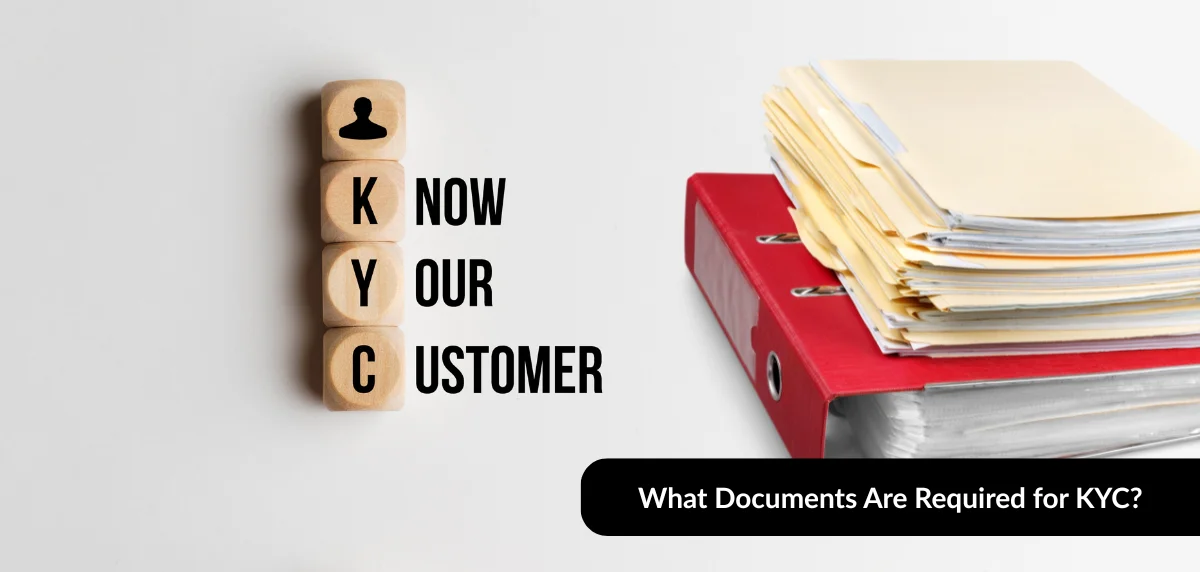KYC or Know Your Customer is a mandatory process used by financial institutions to verify a customer’s identity and address. It helps ensure that banking and financial services are not misused for money laundering, tax evasion, or other unlawful activities.
Whether you are opening a bank account, buying insurance, or investing in mutual funds, completing KYC is essential. Read on to learn more about what KYC is, what documents are required for KYC verification, and more.
What is KYC?
It stands for Know Your Customer. It is a regulatory procedure directed by the Reserve Bank of India (RBI) and forms a part of the Prevention of Money Laundering (PML) Act. The main purpose of KYC is to validate the identity and address of individuals using financial services.
As its name suggests, KYC helps banks and institutions know who their customers are. By doing so, it helps them monitor customers’ transactions for any suspicious activity. It is especially important for services such as mutual funds and banking. It is also important to carry out KYC verification in insurance, as it helps verify the policyholder’s identity and helps prevent fraud and misuse.
What Documents Do You Need for KYC Verification?
If you are wondering what documents are required for KYC verification, here’s a complete list:
Proof of Identity (Any one of the following):
- Aadhaar Card
- PAN Card
- Passport
- Driving License
- Voter ID
- Government-issued photo ID cards (central or state)
Proof of Address (Any one of the following):
- Utility bills (electricity, gas, water, or telephone – not older than 1 month)
- Voter ID
- Driving License
- Passport
- Ration Card
- Bank statement or passbook with address
- Registered rent agreement
- Sale deed of the house
These are the KYC documents required for completing the process for most financial services, including mutual fund investments, banking, and insurance purchases.
Some financial institutions may ask for both sets of KYC documents (identity and address proof) while others may accept a single document that serves both purposes (e.g., Aadhaar card or passport).
Before you apply for an account with a bank, opt for an insurance policy, or avail a crucial financial service, make sure to have the documents required for KYC verification. It will ensure a smooth and hassle-free onboarding experience.
Types of KYC
There are two types of KYC processes:
Online KYC (e-KYC)
Also known as paperless KYC, this method allows users to complete verification digitally. You can upload scanned copies of your identity and address proofs or complete the process via Video KYC. It is especially helpful for those who prefer digital transactions or cannot travel easily.
Offline KYC (In-person Verification)
In this traditional method, individuals visit a bank, insurance office, or any KYC Registration Agency (KRA) to submit the KYC documents physically. Nowadays, many institutions also provide doorstep KYC services for convenience.
How to Submit Documents to the KYC Registration Agency?
Once you have ticked off your KYC documents list, they must be submitted to a KYC Registration Agency (KRA).
This can be done in two ways:
Online (e-KYC submission):
Step 1. Visit the official website of your preferred KRA.
Step 2. Log in using your mobile number.
Step 3. Upload scanned copies of your KYC documents in the required format.
Step 4. Confirm and submit the application.
Step 5. Complete Video KYC if prompted.
Offline (In-person KYC):
Step 1. Download and fill out the KYC form.
Step 2. Attach photocopies of your identity and address proofs.
Step 3. Visit your nearest KRA, bank, or financial institution.
Step 4. Submit the form and list of KYC documents.
Step 5. Complete biometric verification (if required).
It is also important to ensure your information is kept up to date. Any changes in your address or identity details should be updated with the KRA.
Along with investments and insurance, KYC is also crucial in other areas, such as tax compliance. KYC ensures that your bank account earnings are valid and verified, which leads to clearer income tax filing and TDS returns.
Thus, completing KYC is essential for secure and compliant access to financial services in India. By knowing the documents required for KYC and the process of submitting them, you can avoid delays and ensure smooth transactions. Whether it is banking, insurance, investments, or tax concepts, KYC can help build a safer financial system for everyone.
























